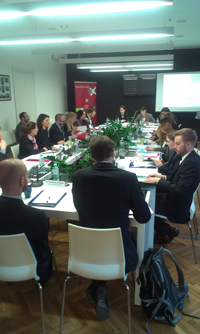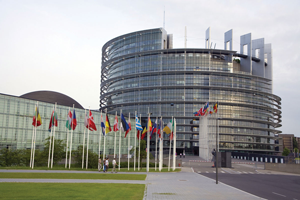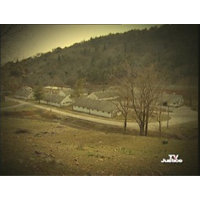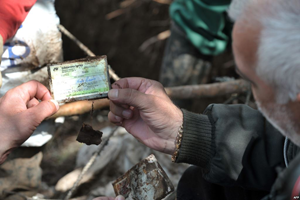Transitional justice mechanisms in Serbia in the context of democratic reforms and Serbia’s EU accession

 A briefing discussion regarding the significance of including transitional justice issues into the process of the European integration of the Republic of Serbia was held on January 23rd, 2015 in the Humanitarian Law Center (HLC) library. Representatives of the embassies of the European Union (EU) member states and Switzerland, Kosovo’s liaison officer, representatives of the EU Delegation and the OSCE Mission to Serbia, Civil Rights Defenders and National Democratic Institute organizations participated in this meeting.
A briefing discussion regarding the significance of including transitional justice issues into the process of the European integration of the Republic of Serbia was held on January 23rd, 2015 in the Humanitarian Law Center (HLC) library. Representatives of the embassies of the European Union (EU) member states and Switzerland, Kosovo’s liaison officer, representatives of the EU Delegation and the OSCE Mission to Serbia, Civil Rights Defenders and National Democratic Institute organizations participated in this meeting.
















